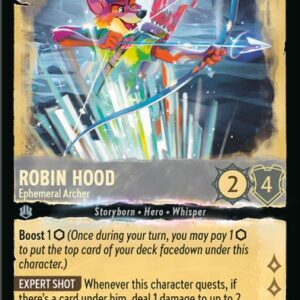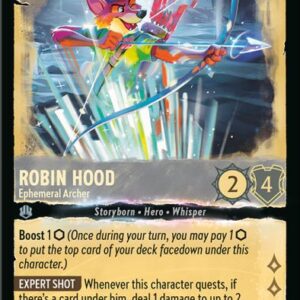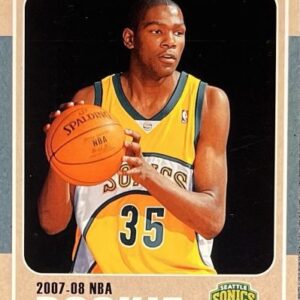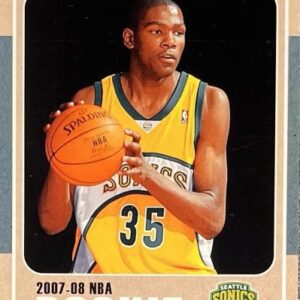In the ever-evolving cosmos of collectible card games, Magic: The Gathering (MTG) stands as a monolithic pillar of strategy and creativity. Its latest collaboration has drawn an electrifying bridge between comic books and Commander decks, bringing the iconic world of Spider-Man into MTG’s multifaceted realm. However, to the surprise of many, this introduction did not come complete with preconstructed Commander decks, leaving fans scratching their heads and some, their spidey senses tingling in anticipation. Enter Spider-Punk, an unexpected hero—or is it anti-hero?—who’s turning tables, literally and figuratively, in how Magic: The Gathering’s Commander format can be mastered.
For those not in the loop, Spider-Punk is a cost-efficient addition to your deck, demanding merely a meager two mana. Seemingly nondescript at first, his Riot ability offers swiftness with haste or bolsters his presence with a +1/+1 counter. But these options are mere appetizers to his main course of chaos: the audacious rules he enforces. Once in play, Spider-Punk changes the fundamental dynamics of the game: spells and abilities become impervious to counteraction, and damage can no longer be negated. Think of it as carte blanche intricately weaved into the gameplay—no more lifeline like Counterspell to snuff out unwanted magic, nor Teferi’s Protection to shield your assets. Even The One Ring feels more like a mere accessory than a power overhead.
To put it mildly, Spider-Punk’s laws of anarchy are exactly what some red-strategy aficionados view as a necessary breath of fiery air. Conversely, this has stirred simmering pots within the Commander community. Spider-Punk’s powers are double-edged, delighting players on their turn with unencumbered pathways to victory but leaving them nervously vulnerable when tables turn. Picture Spider-Punk swooping down to clear your competitors like leaves in the autumn breeze—effortless domination with just a smidge of risk if you aren’t ready to make bold moves. But let’s face it, when your turn concludes, it’s your adversaries who might exploit the chaos to their benefit. With Spider-Punk on the field, someone with a pocket full of instant-speed threats could very easily find themselves with a considerable, perhaps even insurmountable, edge.
Despite these high-stakes theatrics—or precisely because of them—the demand for Spider-Punk has catapulted into stratospheric proportions. Non-foil versions of the card are engaging in pre-launch escapades, aimlessly hovering in the twenties. Meanwhile, foil renditions have boldly pushed into the sixties—an auctioneer’s humble dream. If that wasn’t enough to satiate collectors’ needs, exclusive borderless iterations are concluded in a conclave of forty-eight to fifty-five dollars, eagerly awaiting a home in someone’s prized collection or battle-ready deck.
But lest we forget, the Spider-Man MTG set is not solely reliant on our rock-and-roll, guitar-toting arachnid friend. The Soul Stone, a centerpiece of allure, is crafting a symphony all its own as a potentially game-changing mana rock with an indestructible twist, moonlighting as a reanimator. Doctor Octopus emerges as a possible ringleader for a Villain tribal strategy, pioneering card draw mechanics with the ruthlessness only an eight-limbed genius can muster. Meanwhile, Green Goblin, as mischievous as ever, introduces Mayhem—an ability gambling on the whims of the discard pile, turning discarded dreams into useful threats once more.
Together, each of these unique elements weaves a rich tapestry of choice, drowning players in a sea of possible paths while guiding them towards uncharted strategic horizons. The set urges players not just to hug their favorite archetypes closer but to branch out, experiment, and maybe, just maybe, let a little bit of mayhem spice up their game sessions.
What began as an unveiling closely watched by the faithful has emerged into a cultural crossover gripping tables everywhere. Spider-Punk stands at the center of debates not merely for his explosive flair but for the cosmic shift he’s already inducing across gaming mats far and wide. His existence invites a community to adapt or risk becoming overshadowed by those bolder players willing to embrace chaos in the tooling of their decks.
Spider-Punk, once a fresh addition to the roster, now represents a new axis upon which strategies pivot within Magic: The Gathering. Who knew that a punk with a penchant for shaking things up could add so much to the disciplined and orderly Commander format?





